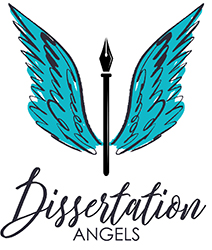A Theoretical…what?
If the words “theoretical framework” leave you dreaming of better times – times before you leapt into what can sometimes feel like an abysmal dissertation journey, you’re not alone. Theoretical frameworks trip many people up, largely because they’re misunderstood. For many students, theoretical frameworks are like gadgets on late night infomercials you somehow know you need yet are completely unsure of when you would ever use them. Believe it or not, the theoretical framework is actually important, so it’s critical to understand what it is and why it matters.
What is a Theoretical Framework?
In theory, the theoretical framework (see what I did there?) should create the foundation for your study. It is used to help identify the philosophical, methodological, epistemological, and analytical underpinnings of your investigation. The framework helps demonstrate your understanding of and approach to your topic, and essentially, can have a significant impact on the decisions you make throughout the course of your investigation. Some of the most commonly used theories across disciplines include:
- Critical theory
- Gender theory
- Feminist theory
- Behavioral theory
- Cognitive theory
- Systems theory
- Situational theories
- Transformational/transactional theories
- Marxist theory
- Self-efficacy theory
- Change theory
- Identity formation
The details of your study, including the constructs, variables, concepts, and research questions, must all align with the theoretical framework. For example, if you chose gender theory for a study on homeless women, you might frame your research questions around gender-related barriers to housing. The framework should also be carefully considered when choosing a research design to ensure alignment with your methodology.
Tips for Creating Your Framework
Play Copycat
The proverbial gold star of academia is the creation of theory. It can be a solid way to make your mark as an expert in your field, and so, if the goal of your own dissertation is not to develop a theory, there is no shortage of theories available for you to sort through in order to find one that fits well with your study. But therein lies a problem. Unless you’ve taken considerable courses on theory or have studied theory yourself, wading through a mountain of scholarly theories on your own can be incredibly time-consuming. You might find yourself struggling to locate a relevant theory, or worse, you may have a hard time choosing from many different theories that could work (and feel tempted to use them all; more on that later). Therefore, one of the most practical ways to begin the hunt for your guiding theory/ies is to see what other researchers have used in studies that had similar objectives to yours. Pay special attention to the theories used in the main studies you discuss in your literature review. Sometimes you have to dig through the article a bit, but in others, the theoretical framework may have a dedicated section that describes exactly what the theory is and why the researchers selected it. From there, you can do additional research on the theory itself to get a better understanding of its development, history, and potential fit with your study. Just remember to always conduct your own research. Tempting as it may be to rely on the information provided by a secondary source, don’t get lazy here. It’s possible that you may interpret a theory slightly differently from another researcher.
 Less is More
Less is More
Just as I discussed in a recent article on the temptation to go overboard with the literature review, you must limit the scope of your theoretical framework, as well. Just because you find multiple theories that could apply to your study, you needn’t feel compelled to integrate them all. Although it may seem like having a vast framework comprised of several theories will strengthen your study, it can often end up detracting from the focus of your dissertation– which is your research. If your theoretical framework is a behemoth that takes up a significant chunk of your Chapter 2, for example, you can end up leading readers down a rabbit hole that creates confusion regarding the specifics of your own study.
In the event you have a pile of theories that would work well with your study, the best thing to do is to pick one or two that demonstrate the strongest fit. Easier said than done? Not really. Just pony up and pick one. Consult with your chair, mentor, or a coach for outside feedback, if necessary. The key is to keep it moving. There are so many potential stumbling blocks along the path to finishing your dissertation, and many of those factors are related to information overload. Do yourself a favor: keep it simple, pick a theory, and move one. Don’t waste months mulling over it.
Plan Ahead
Now, when I urge you to keep your theoretical framework simple and resist the urge to dedicate 30 pages to it, I’m by no means encouraging you to be rash. As I mentioned earlier, there is a point to the theoretical framework. It does matter, and you should develop it with care. Your theoretical framework is not just something you briefly describe in Chapter 1 – it will reappear in Chapters 2 and 5, as well. In your literature review, you’ll likely be required to elaborate on your theoretical framework by reviewing how your selected theories were utilized in other studies similar to yours. Your theoretical framework also provides a foundation for discussing the rest of the studies you review in Chapter 2. Perhaps most importantly, the theoretical framework has a critical role in Chapter 5. You’ll revisit the framework when you interpret what the results of your study mean, make recommendations for future research, and of course, discuss the theoretical implications (how did your findings contribute to or challenge the theory/ies in your framework?). Thus, when developing your framework, think about how you may want to frame your anticipated results, and which theories will help you accomplish that.
Theoretical vs. Conceptual Framework
A theoretical framework is not most appropriate for every study, for a number of reasons. You may need to develop a conceptual framework if you prefer to use other scholars’ findings and ideas that are not theoretical. Conceptual frameworks rely on concepts, assumptions, and beliefs used to guide your research. Essentially, a conceptual framework utilizes logically connected concepts, rather than established theories. For more information on the differences between theoretical and conceptual frameworks, be sure to check out the article I wrote on the topic, here.
 Solicit Feedback from Others
Solicit Feedback from Others
Finally, seek feedback from your chair, committee members, mentor, coach, editor, or other scholars if you’re getting held up by the theoretical framework. The absolute worst thing that you can do throughout the dissertation process is to allow any aspect to slow you down. Get help when you need it. Seek feedback and advice. Don’t struggle alone; there’s really no reason for that.
